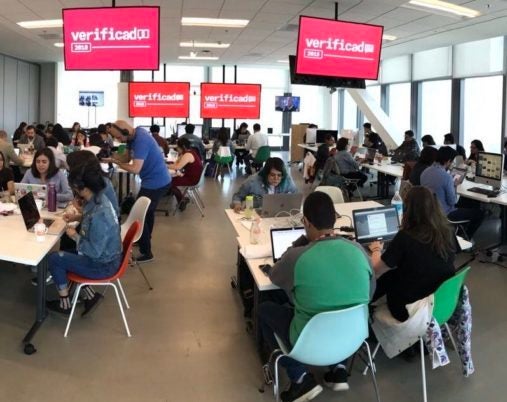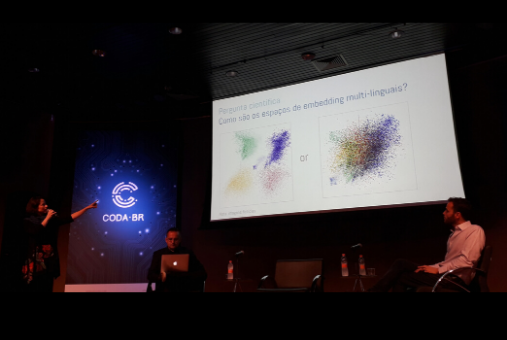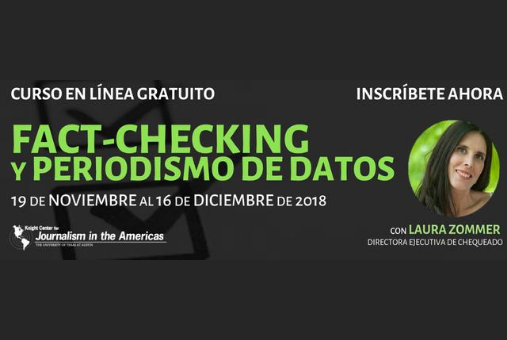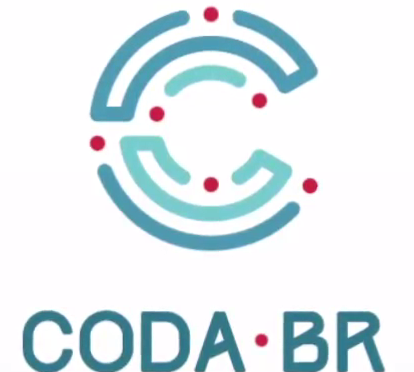The Knight Center for Journalism in the Americas and four instructors from Brazil’s School of Data are joining forces to bring you the online course in Portuguese “Introduction to data journalism: How to interview data for investigative reports.”

Brazil now has a prize to call its own: the Cláudio Weber Abramo Award for Data Journalism, whose entries were opened on June 27 during the 14th Congress of the Brazilian Association of Investigative Journalism (Abraji) in São Paulo.

Jota and Verificado were recognized along with eight other news products during the World News Media Congress in Glasgow, Scotland on June 2.

Members of the growing data journalism community in Brazil gathered from Nov. 10 to 11 for the third edition of the Brazilian Conference on Data Journalism and Digital Methods, Coda.Br, in São Paulo.

With media today, identifying fact from fiction can be a challenge. Yet, it’s in this same environment that fact-checking organizations have sprouted and continue to grow around the globe.

The Brazilian Conference on Data Journalism and Digital Methods – Coda.Br, a pioneering event in Brazil focused on data journalism, will celebrate its third year on Nov. 10 and 11 in São Paulo and has opened registration on its website.
The Knight Center is happy to announce that material for Alberto Cairo's course, “Data Visualization for Storytelling and Discovery,” now can be accessed online. Cairo's course had 5,783 participants from 143 countries and was offered thanks to the generous support by Google News Initiative.

In its latest efforts to help journalists stay up-to-date with the digital revolution, the Knight Center is offering the Massive Open Online Course (MOOC) “Intro to R for Journalists: How to Find Great Stories in Data.”
The Latin American winners of the 2018 Data Journalism Awards tapped into the power of big data to report on a missing Argentine submarine, homicides in Caracas and victims of violence in Brazil.
It’s been a tumultuous few years of Brazilian news. A year after the World Cup frenzy and the presidential election that ended in an impeachment a few months later, newsrooms turned inward: Which would be the next to downsize? As company after company laid off employees, some journalists in São Paulo began to wonder just how many reporters and editors had become unemployed in the shrinking of the news industry in Brazil in the past couple of years.
Bills making their way through Brazil’s Chamber of Deputies will be closely followed by a new kind of beat reporter: a news-producing robot, the first of its kind in the country.
Bills making their way through Brazil’s Chamber of Deputies will be closely followed by a new kind of beat reporter: a news-producing robot, the first of its kind in the country.